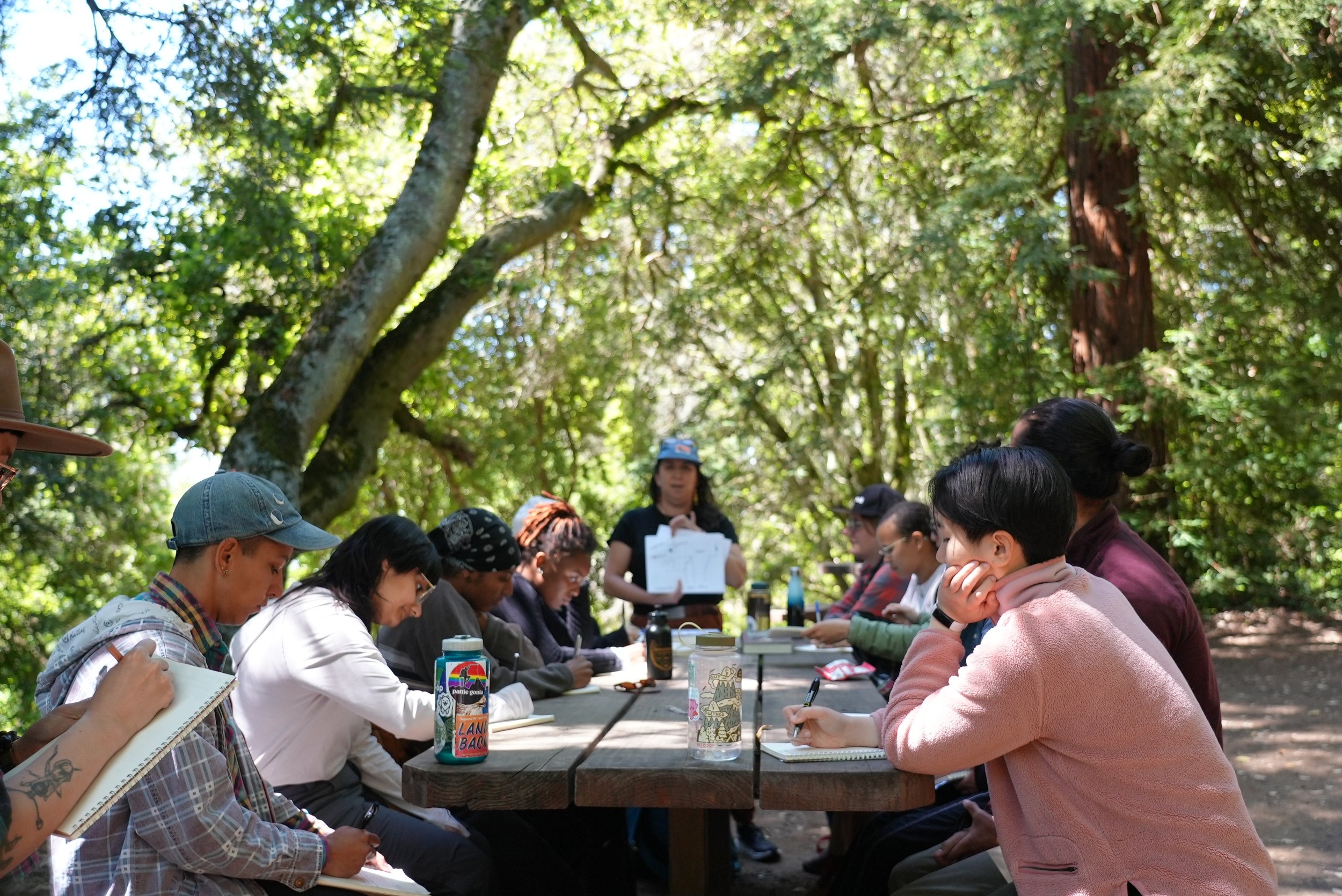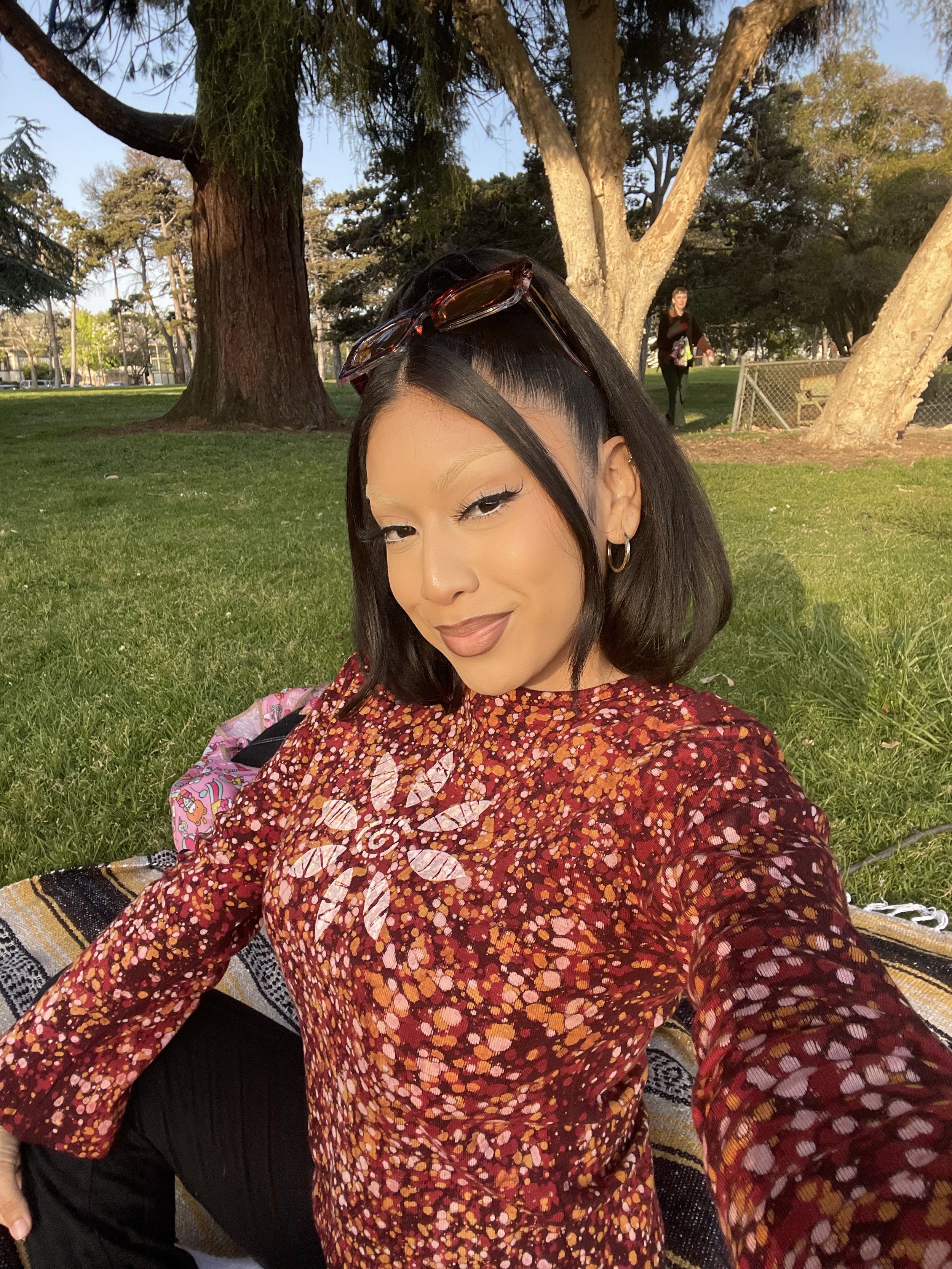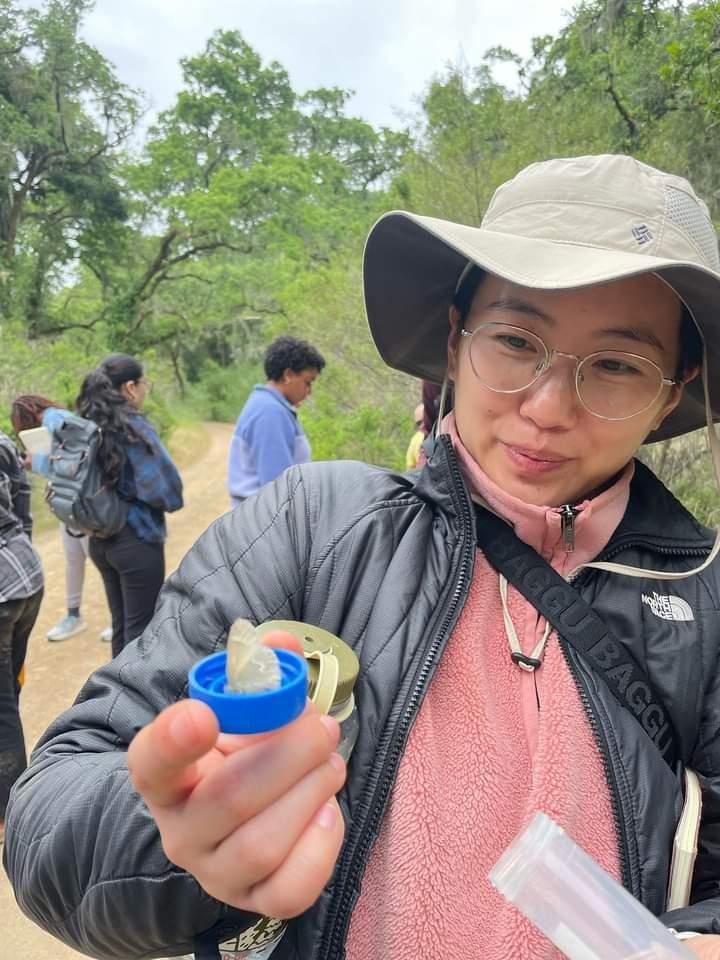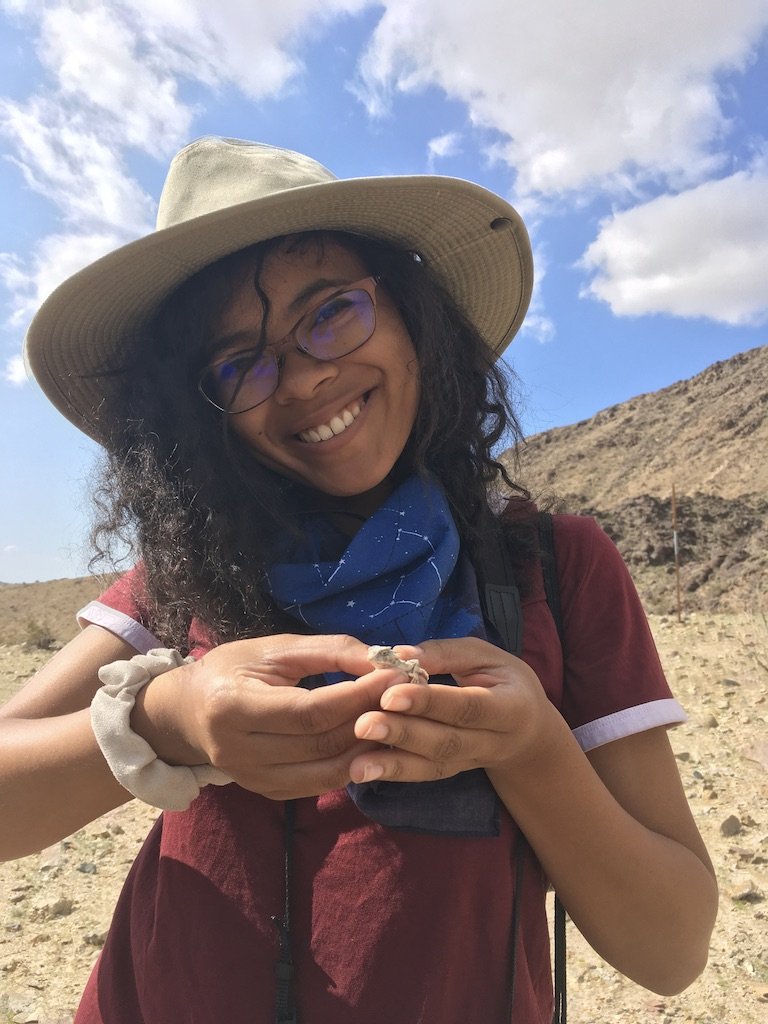
2023 Liberation Ecology Field Course
In its pilot year, the Liberation Ecology Field Course trained students, researchers, educators, and organizers of color to pursue ecological truth telling and respond boldly to the coupled harms of social oppression and ecological disturbance that impact their own communities most.




Core Team
Suzanne Pierre, Ph.D.
Lisa Davies, M.Ed
Anjum Gujral, M.Sc.
Krisztina Mosdossy, M.Sc.
Angela Pai
Constance Taylor
Guest Educators
-
Gregg Castro [t'rowt'raahl Salinan/rumsien-ramaytush Ohlone], has been involved in preservation of his cultural heritage for nearly three decades, for both his late Mother’s rumsien Ohlone heritage, and on his late Father’s side, the since ended ‘Salinan Nation Tribal Council’ (serving two terms as Tribal Chair) and currently the non-profit organization, Salinan T’rowt’raahl. Gregg is a member of the Society for California Archaeology (SCA). Gregg is a Co-Facilitator for the annual California Indian Conference, a 30+ year gathering about California Indigenous heritage. Gregg is a writer and activist within the California indigenous community, on issues regarding cultural preservation, protection, education and traditional practices.
-
Rahawa Haile is an Eritrean American writer whose work has appeared in Pacific Standard, Brooklyn Magazine, and Buzzfeed. Her memoir about hiking the Appalachian Trail is forthcoming from Harper Books. She lives in Oakland.
-
Ambika Kamath is a community and union organizer, writer, and behavioral and evolutionary ecologist. Her lab, the Feminist Lenses for Animal Interaction Research (F.L.A.I.R.) Lab, at the University of Colorado, focuses on social and socioecological interactions among individuals, and the impact of these interactions for evolution and for human understandings of nature.
-
(check back soon!)
-
Marissa Ortega-Welch is an award-winning radio and print freelance journalist based in Oakland, California whose work has been featured in High Country News, NPR, Latino USA, Reveal, The California Report, and Bay Nature. Her current project, a podcast about the history and management of wilderness areas in the American West, will launch in 2023.
-
brontë’s work and rest is guided by the call that “black wellness is the antithesis to state violence” (Mark Anthony Johnson). As a black-latinx transdisciplinary artist, curator, trickster, educator, jibarx and wakeworker, their eco-social art praxis lives at the intersections of black feminist placemaking, abolitionist theologies, environmental regeneration, death doulaship, and the necessity of comedy. They embody this commitment of attending to black health/imagination, commemorative justice (Free Egunfemi) and hospicing the shit that hurts black folks and the land through serving as creative director for Lead to Life design collective and ecological educator for ancestral arts skills and nature-connection school Weaving Earth.
-
Leonora Willis is a birth and postpartum doula and Yoga teacher, as well as a continued student, practitioner and teacher of meditation, mantra, Yoga history and philosophy. She has over 10 years of teaching experience and training.
Gregg Castro
Ambika Kamath
Marissa Ortega-Welch
brontë velez
Rahawa Haile
Leonora Willis
2023 Cohort
-
Descended from self-emancipated fugitives who migrated north, Simone Delaney grew up on Peace and Friendship Treaty Lands (Atlantic Canada) and is currently based in Oakland, California. Interested in intersections of race/space/ecology, they are an architectural and landscape designer that has supported resilience projects in San Francisco, New York, Louisiana, Florida, and Jakarta. A strong advocate for spatial justice, they have been an active organizer with Design as Protest since 2020. They have published works on design justice and Black ecologies for .galt, March International, and Chutney Magazine. Outside of design, they are committed to centering ancestral land-based practices through Black rootwork.
-
My name is Summer Johnson (she/her). I am excited about the liberation ecology field course so that I can continue to build a better relationship with the outdoors and deepen my understanding of ecology, science pedagogy, environmental justice organizing, and the ways in which social and environmental factors impact health outcomes. I am also excited to tap into a new network of folks doing science in ways that are socially responsible, critical and inclusive in order to build healthier and more just communities for all. I enjoy spending my time near the ocean, exploring the Bay on my bike, cooking, dancing, and reading and telling stories. I work as a high school teacher in Oakland, and currently teach public and community health and facilitate a course in genomics. In my teaching practice, I am constantly considering ways to cultivate a more creative, humanizing and critical classroom that challenges and empowers the young people that I teach.
-
Nautica's research seeks to evaluate Black traditional ecological knowledge (BTEK) use and impacts in the United States. BTEK is an empirical knowledge system composed of generational observations and techniques authored by black people. As the severity of climate change escalates faster than data can be generated, crisis fields like conservation biology and climate adaptation are relying on ecological theory to guide action plans. As traditional knowledge does not rely on Western data, partnerships between knowledge systems may be an overlooked tool.
-
Salma Berumen, Workforce Coordinator at Groundwork Richmond, works in collaboration with local youth and community members to combat climate change through urban forestry and citizen science. Her work revolves around empowering and uplifting young people by providing them with access to training, mentorship, and meaningful employment opportunities in the green industry.
Salma's commitment to foster resilience and sustainable solutions is what led her to take the CEL field course. Salma seeks to amplify the voices of her community and encourage active engagement in dismantling unjust structures for equal access to clean air, clean water, and a healthy environment.
In her spare time, she enjoys hanging out with friends, going on hikes, and exploring restaurants in the Bay Area
-
Nicolás is a PhD student at University of Santa Cruz's Ecology and Evolutionary Biology department where he studies the ecology of Indigenous cultural burning, the ecological impacts of settler colonialism, and the restoration of Indigenous land management. He currently works with tribes in Lake County who are reintroducing fire to tule wetlands and oak woodlands and is a participant and steering committee member of the Lake County TREX, a prescribed burn training exchange that brings together tribes, government agencies, nonprofits, and private landowners to lay down good fire.
-
Indra is a queer farmer and traditional Chinese medicine bodyworker based on the northern California coast, where they work at an educational farm that serves BIPOC youth from the bay area. Indra is deeply driven by queer ecology, food medicine, ancestral seed stewardship, somatic healing, and creating spaces for QTBIPOC to experience expansive joy with the land and sea.
-
Millie first began their journey in the environmental space through their work with conservation corps from the San Juan Mountains of Colorado to the Puget Sound in Seattle. In 2018 they moved to the Bay Area to work with the Golden Gate National Parks Conservancy in the Native Plant Nursery space. In their current role as Native Plant Nursery Manager with Save the Bay based in Oakland, their work revolves around restoring habitat along the shoreline of the Bay through community based stewardship. In all aspects of the work they lead, Millie remains deeply committed to fostering a sense of deep belonging in the outdoors for those communities historically excluded.
-
Kyla Cheung is a gardener, writer, and community health advocate. After years as an educator, researcher, and youth worker, they are led by a study and practice of medicine that centers life, justice, and the ending of violence.
-
Neena Mohan (pronouns: they/she/he) is an environmental justice advocate at the California Environmental Justice Alliance (CEJA), where they have served in various roles, including Climate Justice Program Manager, Climate & Air Campaign Manager, and most recently, Grant Writer. Neena has also served on the AB 32 Environmental Justice Advisory Committee to the California Air Resources Board (CARB) and on the California Energy Commission’s (CEC) Clean Transportation Program Investment Plan Advisory Committee. Neena's dream is that together we can create a just transition that addresses harms to marginalized communities, while also mitigating the impacts of climate change on our planet. Neena holds Bachelors of Science degrees in Environmental Sciences and in Conservation & Resources Studies, as well as a minor in LGBT Studies, from UC Berkeley. Outside of work, you can find Neena teaching yoga, peer counseling the trans community, and making music. Neena also enjoys exploring various decolonial and queer ecological theories, and is on a journey of (re)discovering and (re)defining their relationship to land, institutions, other beings, and themselves. Neena’s guiding light is the interconnectedness of all things, and hopes their efforts in this work help bring about more healing, freedom, and love in these connections.
-
Lauryn is an extraordinary explorer. They joined CEL to learn about environmental care and ecology in previously colonized territories.
-
Noah Schlager cvhocefcetos, este mvskokvlket owis. My name is Noah Schlager, and I am Mvskoke-Creek (Poarch Band Descendant), Southern Creole, and Jewish. I was born and raised in the San Francisco Bay Area on the unceded lands of the Ohlone and Coast Miwok. My work centers on revitalizing and reclaiming Indigenous practices of agriculture and land care, thoughtfully challenging the colonial legacy of the dominant environmental movement, and supporting the recognition of Indigenous science and leadership. I am particulay passionate about conserving the agricultural biodiversity of my Southeastern Indigneous and Creole ancestors. I currently farm and steward several dozen endangered varieties of Southeastern and Southwestern Indigenous corn, beans, peas, squash, okra, watermelon, and peppers.
-
"Fiorella Lema (they/them) is a self identified multidisciplinary/multidimensional queer artist, ceramist, cosmic DIY myco-enthusiast, and science fiction lover existing in the Peruvian diaspora. They create art pieces grounded in a queer spiritual pedagogy, exploring ideas of creation, lineage, futurity, diaspora, speculative landscapes, ancestor worship, and myth-making and ritual. They hold a deep and compassionate commitment to create works that can critically speak to the relationship diasporic people have to the land, and constantly seek to cultivate spaces that can help detangle some of those threads. Their understand of ecologies comes from community members who dedicate their time teach others about the climate crisis, eco-queers who share their knowledge about queer ecologies through online courses/reading lists/workshops, elders that carry knowledge about Andean cosmovision as it relates to the earth, and community curanderas (folk healers) who have taught them about being in reciprocity with the land when you are someone who works with plants, herbs, and fungi.
"
-
My name is Jada Smith (she/her) and I recently graduated from California State University, Fullerton where I obtained a B.S in Biological Science with a concentration in Ecology and Evolutionary Biology. During my undergraduate career I was in the Southern California Ecosystems Research Program (SCERP) where I researched patterns of epiphyte growth under conditions of sea level rise on native California rockweed, Pelvetiopsis californica. I am interested in examining the relationship between people and planet through an anti-colonial lens that acknowledges and embraces BIPOC and queer perspectives. I have hopes to pursue a Master's degree and design a project rooted in principles of Critical Ecology.
With support from






















